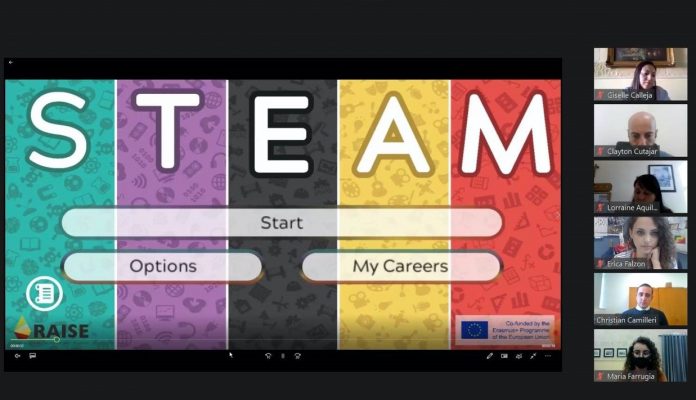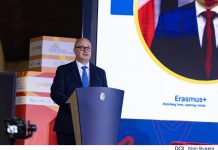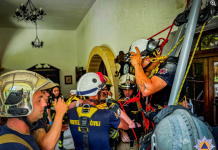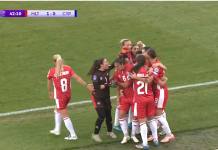Esplora Interactive Science Centre, together with Parliamentary Secretary for European Funds Stefan Zrinzo Azzopardi and Parliamentary Secretary for Financial Services and Digital Economy Clayton Bartolo have launched a new mobile app and a free Education Resource pack on careers in the fields of Science, Technology, Engineering, Art and Mathematics (STEAM).
The RAISE project – a 3-year project with European partners in the field of STEAM was co-funded by the European Union’s ERASMUS+ Programme. The project involved many innovative elements, such as the development of the mobile app named RAISE Careers. This can be accessed freely and used either from school or from the comfort of one’s home. It can also be utilised at science centres and at the university of the applying partner countries through the use of multimedia exhibits or technological devices.
In his opening address, Executive Chairman of the Malta Council for Science and Technology Dr Jeffrey Pullicino Orlando highlighted the continued importance of offering high-quality STEAM (Science, Technology, Engineering, Arts and Maths) education. This should be done for all students in compulsory schooling and through non-formal learning, given the worrying shortfall in human resources for available STEAM-related careers. He added that, to help increase students’ interest in STEAM occupations, “Esplora is committed to holding its annual National STEAM Career Expo for late primary students to showcase local and European STEAM careers, as well as organising several ‘Family Science Days’, which are held throughout the year to encourage families to mingle with STEAM professionals.”
Parliamentary Secretary for European Funds Stefan Zrinzo Azzopardi stated that this project caters for the changes that we are seeing constantly by training and educating the youth to be able to seize the opportunities that the future will bring. Dr Zrinzo Azzopardi said that €408,041 were invested in this project co-financed with European funds, more specifically the ERASMUS+ programme. The Parliamentary Secretary said that the European Union this week organised VET week under the theme ‘VET for Green and Digital Transitions’, promoting vocational skills so that these persons are prepared for the transition. He concluded by saying that, with projects similar to these, we are raising awareness, as Malta is preparing its youth and industry by providing the necessary tools to facilitate the transition to a digital economy.

In his address, Parliamentary Secretary for Financial Services and Digital Economy Clayton Bartolo remarked that the R.A.I.S.E project is celebrating Malta’s alliance with our European counterparts, in another step forward to build a knowledge-based economy. In fact, he highlighted that it is truly encouraging having an Erasmus programme that addresses the skills mismatch and changes within this employment sector. In this age of acceleration, Mr Bartolo stressed the need for politicians and policymakers to take a step back, look at the bigger picture and fully recognise that in a world that is getting more digital every day, bold decisions need to be taken. “We have the responsibility of making sure that, should a pandemic or an unexpected economic crisis reach our shores, Malta will be ready to combat these asymmetric shocks. Building a digital economy based on emerging technologies, complemented by a knowledge-based workforce, is the way forward. This is why the future starts today,” stated Parliamentary Secretary Bartolo.
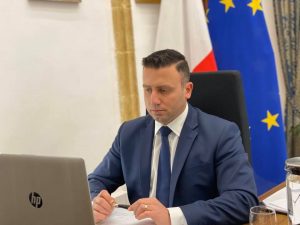
Despite the fact that numbers of males and females participating in, and excelling at, science are roughly equal throughout primary and secondary school, fewer women enter STEAM majors in college, and fewer still graduate with a STEAM degree.
In response to this gender gap, apart from the app, the project partners compiled various intellectual outputs, such as the De-Stereotyping Stereotypes Education Resource Pack, which is freely available online as an open education resource; https://raiseprojecteu.com/resources/.
This project was coordinated by Esplora with the involvement of local and foreign participation, namely the Malta College of Arts, Science and Technology (MCAST), SISSA Medialab in Italy, Glasgow Science Centre in Scotland, Hiša Eksperimentov in Slovenia and the Luxembourg Science Centre, and received €408,041.


